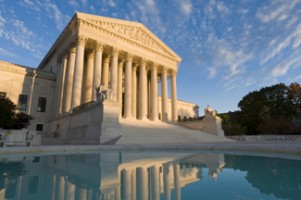Supreme Court to decide if church-affiliated pension plans are subject to ERISA

The U.S. Supreme Court on Friday accepted and consolidated three cases that consider whether pension plans operated by church-affiliated groups are subject to the Employee Retirement Income Security Act.
At issue is whether the pension plans operated by three Christian-affiliated hospital systems are exempted from federal regulation because of ERISA’s church-plan exemption, report Lyle Denniston Law News, Bloomberg News, Reuters, the National Law Journal (sub. req.) and SCOTUSblog.
Employees suing St. Peter’s Healthcare System, Advocate Health System and Dignity Health claim the hospitals are evading ERISA’s minimum funding and reporting requirements, and that puts their pensions at risk, Reuters explains.
Three federal appeals courts have refused to dismiss the lawsuits. They are the Philadelphia-based 3rd U.S. Circuit Court of Appeals, the Chicago-based 7th U.S. Circuit Court of Appeals and the San Francisco-based 9th U.S. Circuit Court of Appeals. The SCOTUSblog case pages are here, here and here.
The plaintiffs are seeking compliance with ERISA and retroactive penalties for past violations of the law. The hospitals say they relied on interpretations by federal agencies that enforce ERISA that interpret the church plan exemption to apply to church-affiliated organizations, even if a church itself did not initially establish the pension plan.
The federal appeals rulings have spurred dozens of class-action lawsuits seeking billions of dollars for retroactive liability, according to one of the cert petitions (PDF).
The cases are Advocate Health Care v. Stapleton, St. Peter’s Healthcare v. Kaplan, and Dignity Health v. Rollins.



